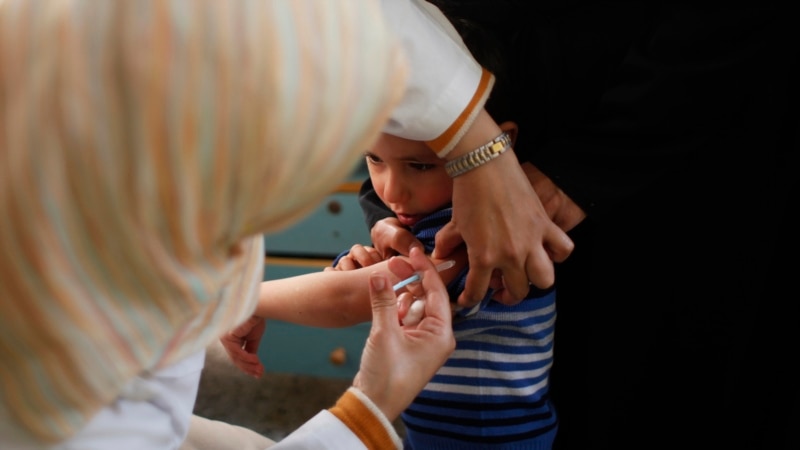WHO says polio vaccine campaign hurt by lack of Gaza cease-fire

CAIRO — The World Health Organization is working on a polio vaccination campaign for Gaza after the virus was detected there, officials say, although the absence of a cease-fire in Israel's war with Hamas presents multiple roadblocks.
Gaza's health ministry declared a polio epidemic in the Palestinian enclave last month, blaming Israel's ongoing military offensive.
While no clinical cases have been found so far, polio was detected in sewage in Gaza's Deir al-Balah and Khan Younis governorates, Dr. Hamid Jafari, a WHO polio specialist, said during a news conference on Wednesday, adding it was possible the virus had been circulating since September.
Children under five are most at risk from the viral disease, and especially infants under two since normal vaccination campaigns have been disrupted by 10 months of conflict.
While vaccines necessary to immunize half a million children against the outbreak were available, delivery into the Palestinian territory and the kind of door-to-door, or tent-to-tent, delivery necessary in Gaza was difficult given restricted freedom of movement, officials said.
"We need a cease-fire, even a temporary cease-fire to successfully undertake these campaigns. Otherwise, we risk the virus spreading further, including across borders," said Hanan Balkhy, regional WHO director.
Poliomyelitis, which is spread mainly through the fecal-oral route, is a highly infectious virus that can invade the nervous system and cause paralysis. Cases of polio have declined by 99% worldwide since 1988 thanks to mass vaccination campaigns and efforts continue to eradicate it completely.
Balkhy also pointed out the risk of the development of antimicrobial resistance within Gaza, and the possibility of such strains spreading into other countries.
Gaza had recorded 24 times the normal rate of diarrhea cases, as well as more than 100,000 cases of scabies and lice, and 70,000 cases of skin rashes as a result of overcrowding, overflowing sewage, and contaminated water, said Dr. Richard Peeperkorn, WHO representative in the occupied Palestinian territory.
